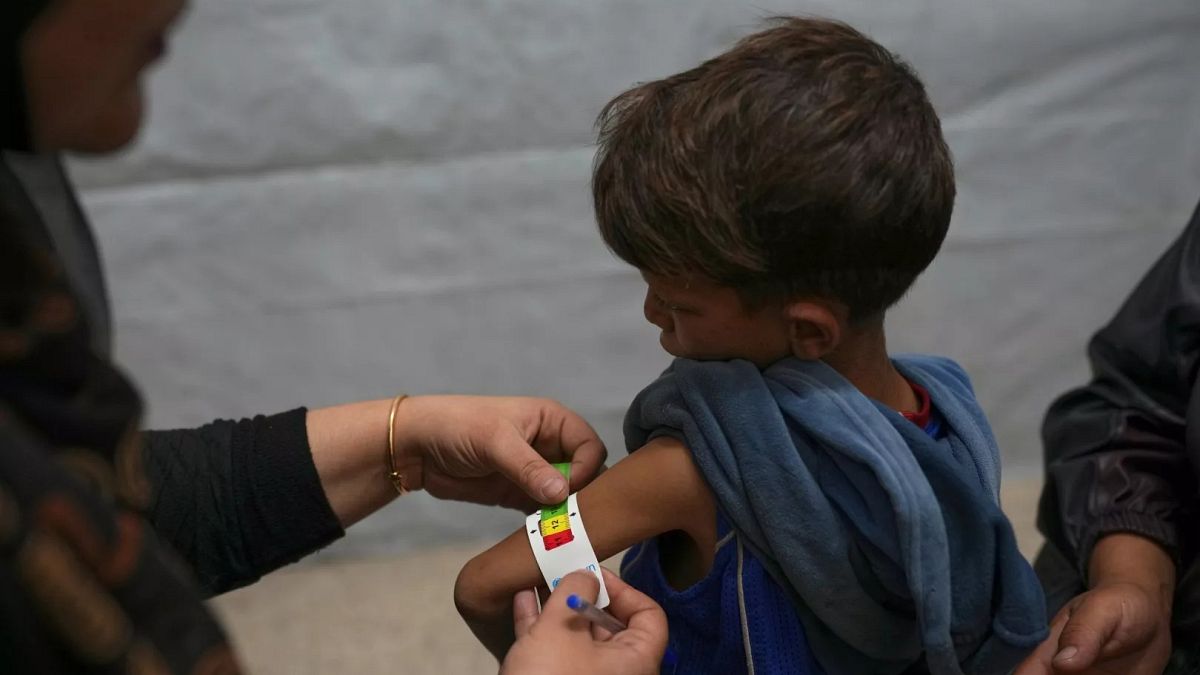

In the often unpredictable ebb and flow of global events, new challenges arise alongside promising collaborations. As countries work to find balance and harmony, a number of notable developments have emerged, shedding light on critical and complex issues.
In Gaza, the specter of childhood malnutrition looms large, revealing a critical humanitarian situation. According to recent findings by the United Nations, malnutrition rates among children have doubled over the past months. This troubling trend coincides with the resumption of conflict in the area, which has severely disrupted the flow of essential supplies, including food. The over two million residents of Gaza find themselves in increasing need of support as their access to basic necessities continues to dwindle. The humanitarian community is being called upon to address this growing crisis carefully and compassionately, ensuring that children receive the nourishment and care they desperately require.
Meanwhile, in Europe, the rise of births resulting from sperm and egg donations has sparked important conversations regarding regulatory practices. The phenomenon of “super donors” — individuals who donate sperm or eggs extensively — has become increasingly common, leading various European Union nations to advocate for establishing clear, comprehensive guidelines. The need for such regulations is underscored by the potential implications on genetic diversity and family dynamics. The EU’s challenge lies in balancing the rights of donors, recipients, and future children, ensuring a system that is both ethical and efficient. With international cooperation, the EU hopes to create a consistent framework that maintains integrity while respecting diverse cultural perspectives.
As some regions grapple with pressing social issues, others are turning their gaze toward the future of energy solutions. A new coalition is forming an ambitious venture involving Azerbaijan, Uzbekistan, and Kazakhstan, with the aim of developing a transcontinental green energy corridor. This initiative represents a significant step toward reducing carbon footprints and fostering sustainable development. By aligning resources and expertise, the participating countries envision an energy bridge that will strengthen ties between Central Asia and Europe. Their commitment to renewable energy not only promises a reduction in environmental impact but also promotes economic growth and regional cooperation.
The endeavor to create this Green Corridor stands as a testament to the power of collaboration and innovation. As these nations work together to build a more sustainable future, they highlight the importance of merging environmental responsibility with economic advancement. By leveraging their unique strengths, these countries are poised to make meaningful contributions to global energy security.
Whether confronting urgent humanitarian needs, navigating the intricacies of bioethics, or harnessing the potential of green technologies, these developments underscore a common thread: the pursuit of solutions through mindful cooperation. As the world continues to evolve, the path forward will invariably be shaped by the willingness to engage thoughtfully with the challenges at hand. In doing so, nations and communities have the opportunity to forge a more just and sustainable world for future generations.
Source: {link}
